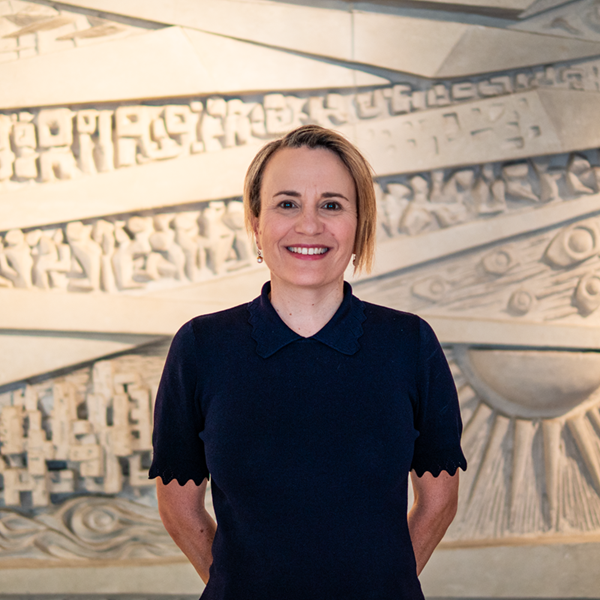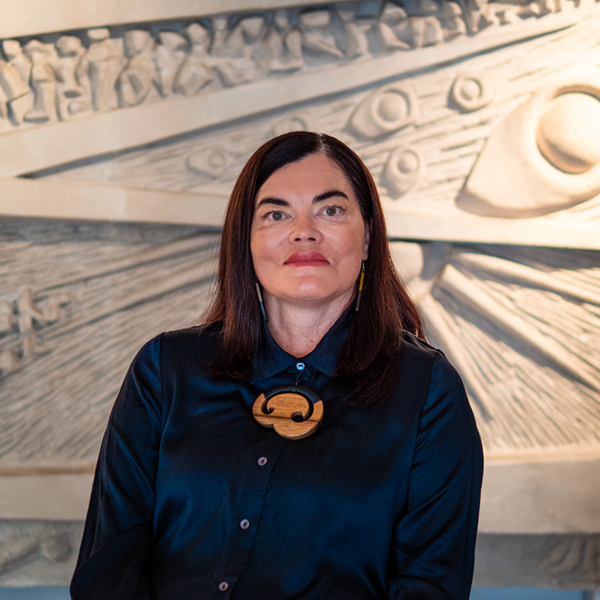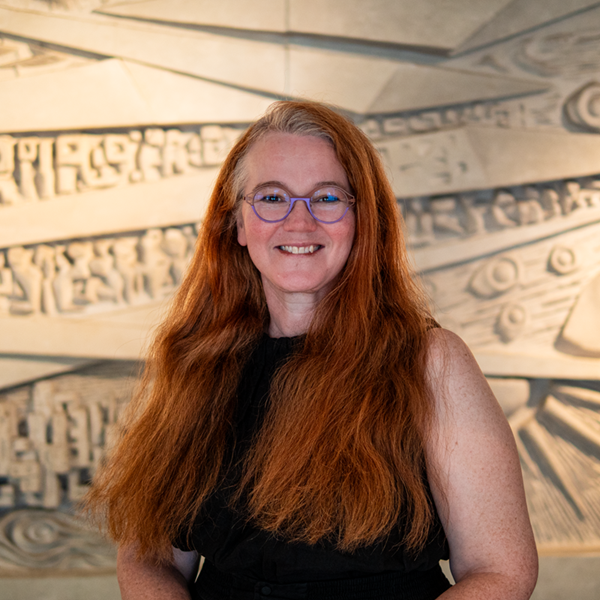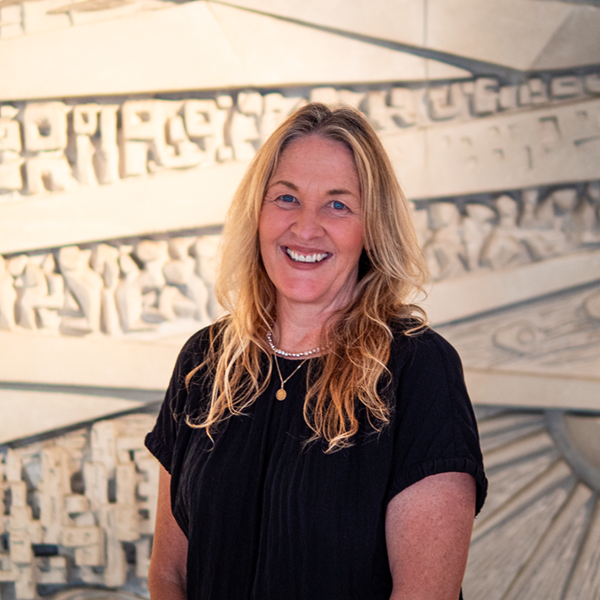Leadership and structure
Chief Executive Paula Tesoriero leads Whaikaha. Three business groups, each headed by its own Deputy Chief Executive (DCE), report to the Chief Executive.
Our Kaihautū – Chief Advisor Māori is also part of our Executive Leadership Team to support us to embed our Te Tiriti o Waitangi approach.
Chief Executive
Ms Paula Tesoriero MNZM PLY is Secretary for Disabled People, Chief Executive of Whaikaha – Ministry of Disabled People.
Paula provides strategic leadership to Whaikaha and across government to drive real and meaningful change with disabled people, tāngata whaikaha Māori, and their whānau.
Paula is well-known and a respected leader in the disability community. She is disabled and has a deep knowledge of the challenges and opportunities for the disability community.
Paula was previously the Disability Rights Commissioner at the Human Rights Commission, a position she held since 2017. She also acted in the role of Chief Human Rights Commissioner from May 2018 to January 2019.
Paula is an experienced Public Service leader. From 2010 to 2016, she was the General Manager, Higher Courts at the Ministry of Justice. In 2016, she was seconded to Statistics New Zealand where she was the General Manager, System and Partnership.
Paula has served in various governance roles including as Deputy Chair of Peke Waihanga — Artificial Limb Service and Deputy Chair of Nuku Ora (previously Sport Wellington) and she served on the Board of Paralympics NZ. She is a life trustee of the Halberg Disability Sport Foundation and is an honorary advisor to the Asia New Zealand Foundation.
Paula is a Paralympian, winning a gold medal and two bronze medals at the 2008 Summer Paralympic Games in Beijing.

Kaihautū — Chief Advisor Māori
Ronelle Baker — Ngāti Porou, Te Aitanga a Hauiti, Ngāti Tāmanuhiri, Ngāti Apakura, Ngāpuhi
Ronelle has extensive experience across the health, disability, non-government and government sectors. Her last role was as Principal Advisor Accessibility at Stats New Zealand, and she is currently the Chair of Spectrum Care Ltd finishing end of February 2024. Ronelle also serves on the board of Mana Mokopuna — the Children and Young People's Commission.
Ronelle is a power chair user and her whānau have a wide range of lived experience due to the impacts of living with inter-generational Muscular Dystrophy. She is a passionate advocate for improving wellbeing, equity and inclusion for whānau who experience disability.
Our Kaihautū is a member of the Executive Leadership team and provides leadership and strategic direction to ensure Whaikaha is grounded in Te Tiriti o Waitangi. The Kaihautū leads organisation wide initiatives to support Whaikaha achieve its Te Tiriti o Waitangi aspirations and support Whaikaha to strengthen its relationships with tāngata whaikaha Māori me o rātou whānau.
Rights realisation and equitable outcomes under the three pou of Te Tiriti o Waitangi, Enabling Good Lives, and the UNCRPD is a collective responsibility for Whaikaha, that will be supported by the Kaihautū and informed by evidence, engagement and system transformation.

Business groups
Whaikaha is made up of the following business groups:
- Outreach and innovation
- Policy and insights
- Strategy and enablement
Each group is headed by a member of executive leadership team who reports to the chief executive.
All business groups focus on making sure that the work we do aligns with our obligations under Te Tiriti o Waitangi and the United Nations Convention on the Rights of Persons with Disabilities (UNCRPD).
Outreach and innovation
Deputy Chief Executive: Rebecca Elvy
This group leads the design, planning, and delivery of initiatives to shift perceptions and create a more accessible New Zealand. They champion the disability and Deaf value proposition, create practical tools, provide advice, and celebrate good practice.
Their work includes supporting leadership capability and capacity-building of disabled and Deaf organisations. They also lead the work on research, reporting, and evaluation.
Key areas include:
- planned interventions/initiatives
- structured relationship management and engagement
- communications
- servicing Ministers and governance
- accessibility strategy and work programme
- community leadership capability and capacity building
- secretariat for the NZSL Board.

Policy and insights
Deputy Chief Executive: Ben O’Meara
This group leads policy advice for the Government on issues affecting disabled people and tāngata whaikaha Māori and on policy options for responding to those issues, including links to international forums that consider issues and opportunities for disabled people.
Policy work focuses on societal- and system-level change. It is supported by data and insights and system monitoring to raise the visibility of outcomes for disabled people and tāngata whaikaha Māori and organisational accountabilities for improving those outcomes.
Key policy areas include:
- education
- employment
- health
- housing
- justice.
The Ministry supports the policy process by:
- influencing the development of disability-informed advice across the central government policy community
- contributing robust data and insights on disability into cross-government policy processes
- supporting research, monitoring, and evaluation to better understand how to improve outcomes for disabled people and tāngata whaikaha Māori
- supporting agencies to deliver the Government’s key targets for disabled people.

Strategy and enablement
Deputy Chief Executive: Ginny Baddeley
This group ensures the Ministry is strategy-led and has the capacity and capability to achieve its purpose safely. This includes making information about government processes and services accessible and ensuring that external parties can engage effectively and efficiently with disabled and Deaf people. Key areas include:
- strategy and planning
- employment pathways for disabled people within the public service
- providing all-of-government disability information
- delivering alternate formats
- corporate services
- governance and services to the chief executive.

